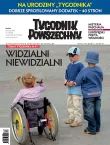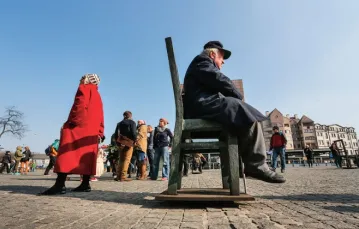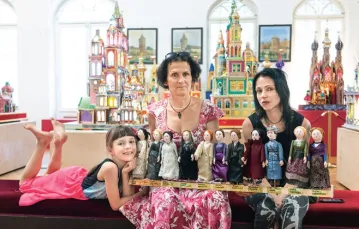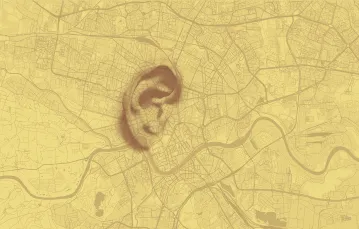Wykupienie dostępu pozwoli Ci czytać artykuły wysokiej jakości i wspierać niezależne dziennikarstwo w wymagających dla wydawców czasach. Rośnij z nami! Pełna oferta →
Yet, three days ago at the Bethlehem shelter in Wrocław, one of the oldest shelters for single mothers, a remarkable exhibition opened. It was the flipside to the beautiful and solemn religious ceremonies at Majdanek and Lublin, at Kraków’s Franciscan Church, and at the Pontifical University of John Paul II. The exhibition displayed seventy of the several hundred photographs taken last year on the streets of Wrocław by a fourteen-year-old secondary school pupil. The photographs show anti-Semitic graffiti scrawled on the city’s walls. The girl, who at her parents’ (entirely understandable) insistence appears under the pseudonym of “Secondary School Pupil", kept notes during each of her trips: where the graffiti was found, what it said, and, in some cases, how long it remained (she would return to the same places after a period of time). Often the graffiti would be left untouched, but sometimes it would be painted over (usually, notes the “Secondary School Pupil", when it appeared on the wall of the Jewish cemetery). The girl also notes the ingeniousness of the caricatures bearing Jewish symbols, and the custom, practised since the first free elections in the new democratic Poland, of painting stars of David on the photographs of disliked candidates. The notes are terse and without commentary, as if this young pupil, on the cusp of adult life, did not even wish to find a way of expressing the feelings growing inside her.
What was her inspiration? Reading Adam Czerniaków’s Diary. And her conclusion? “I would like it if my exhibition changed something. Painting over graffiti won’t in itself change anything. We have to do something to change people’s hearts and minds. There are very few teachers whom students want to listen to. Priests, perhaps? (...) Or journalists? Or maybe [Jerzy] Owsiak? [a Polish journalist and social campaigner] (...) Most of the courtyards I passed through were horrible, scary, and foul-smelling. And that’s where those people live..."
This is definitely a problem. But another problem is the fact that passers-by, landlords and local authorities allow this graffiti to remain, when it should give rise to the kind of embarrassment that makes one immediately try to remove its cause. This fourteen-year-old girl named her exhibition (which is to last only sixteen days) after one of the pieces of graffiti she found. It read: “Holocaust - why not?" Even this is possible, it seems.
Tygodnik Powszechny No 3/02








